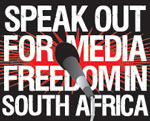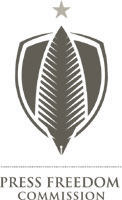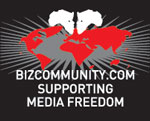
Top stories






More news


Marketing & Media
Ads are coming to AI. Does that really have to be such a bad thing?













Rupert Murdoch's News of the World, one of the largest circulation English newspapers in the world, was found to have hacked the phones of celebrities, politicians, sport stars, even a murdered school girl, victims of the London subway bombings - the list goes on.
Politicians hoping to legislate problems away
In calling for the doing away of media self-regulation, Cameron joins a long line of politicians hoping to legislate away the problems they face staying in and exerting power while dodging and diving their way around a free press.
It's gravely sad that journalists themselves are giving Cameron and his ilk the ammunition they need to justify greater government influence in the affairs of the fourth estate. And, locally, the African National Congress (ANC) is bound to point to events in London as further proof that the press need to be taken in hand so that what they publish be regulated further.
Cameron has called for an (government-appointed) inquiry to look at the culture, the practices and the ethics of the British press.
He also called the current self-regulatory body, the Press Complaints Commission, 'ineffective and lacking in rigour' and 'failed.' "There is a strong case for saying it [the Press Complaints Commission] is institutionally conflicted, because competing newspapers judge each other," Cameron said. Sound familiar? It should.

The discussion paper prepared for the ANC National General Council 2010 (held in Durban last year), and which helped drive proposals around stronger media regulation in the form of a media appeals tribunal (MAT) and through the Protection of Information Bill (POIB), stated that "the mere fact that the press ombudsman is from the media ranks, a former journalist, and is not an independent person who looks at the media from the layman's perspective poses an inherent bias towards the media with all interpretations favourable to the institution and the other party just have to understand and accept the media way which is grossly unfair and unjust."
"Freedom of expression needs to be defended but freedom of expression can also be a refuge for journalist scoundrels, to hide mediocrity and glorify truly unprofessional conduct" (point 67), the ANC discussion paper continued.
Cameron also styled himself the defender of the free press, saying "Of course it is vital that our press is free. That is an essential component of our democracy and our way of life... But press freedom does not mean that the press should be above the law."
Stripping away the niceties
In The Observer, Peter Preston wonders how Cameron's version of a media tribunal might look, and describes it, in short and stripping away the niceties with which regulators will be sure to try and disguise it, as "a government-appointed judge as supreme editor of everything, with added enforcers [to serve as investigators]."
Of course, the case of the now-shuttered NoW (#NOTW) isn't quite as straightforward as Cameron would have the public believe. For starters, it was a rival newspaper that outed the truth, after several years off on-going investigation, rather than the British authorities, who seem to have been turning a blind eye in the interests of their political masters who have generally been close to the Murdoch clan.
Cameron, meanwhile, is keen to deflect criticism on his decision to appoint former NOW editor Andy Coulson as his communications chief after Coulson resigned from the paper in 2007, when the paper's royal editor and a private investigator were charged and sentenced in a phone hacking (Coulson resigned earlier this year and was finally arrested on Friday, 8 July 2011, amid allegations that he knew about and where involved in the hacking of phones during his editorship).
Legal framework already exists
Cameron describes his attempts at government intervention in the regulation of media in terms of making the press responsible before the law. Yet the legal framework for prosecuting the journalists, editors and private investigators involved in illegal hacking does exist, and will certainly - and finally - be enforced.

All this is happening just as Print Media South Africa (PMSA) and South African National Editors' Forum (SANEF) launched the Press Freedom Commission, a new commission investigating the regulation of print media and which will be chaired by Justice Pius Langa.
Calls for more regulation and a less free press, both here and abroad, are in line with disconcerting attempts by the powers-that-be to centralise power and create a more fearful, less free world. Cameron speaks from a centre of power that has effectively created a surveillance state in the UK.
Meant to safeguard democratic rights
Politicians in democracies are meant to safeguard the democratic rights of their constituents, not erode it by criminalising ever larger sections of society.
The system we have built to safe guard our democratic rights and protect our way of life is falling over, politicians are on the make, the law is becoming only accessible to the moneyed and health care often employs the uncaring, while those sworn who protect us brutalise us instead.
The fourth estate, the rogue safeguard against the executive excess, has been party to its own undermining, centralising and consolidating itself under people such as Murdoch, sometimes breaking the law and often failing to maintain public trust.
The debate, it seems, should go well beyond the role of the media in a democratic society.
Of course, as the politicos and journalists face off to fight for the future of print, social media and the Internet are sweeping away the ability of either to effectively control the flow of information. As media becomes more democratic, the fight to control it seems ineffectual, but serves as reminder how out of touch and disconnected the Western power ecosystem has become.

For more:
